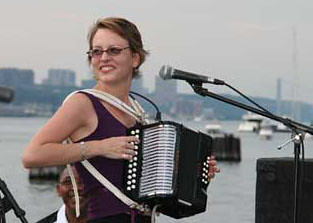Recently, I’ve been traveling again. I was at a conference in Phoenix, I had Thanksgiving with family in Riverside, California, and most excitingly, I was in Hawaii. It was also for a conference but I was, sadly, forced to ditch some of the proceedings to hang out on the beach instead. I’ve put a couple of pictures from that trip below for you to enjoy.
At the moment, I’m temporarily residing in a writers’ colony right here in called Casa Libre en la Solana (http://www.casalibre.org/). It’s a great place and I’m getting a lot done. I’m going to be very sad when I have to leave my cute little apartment here next week! Anyway, lately I’ve been writing about gender roles in the DR, particularly that of the tíguere. So here, for you, readers, is a moment of diversion with the tíguere.
Literally, tíguere is simply the peculiarly Dominican pronunciation of the word for “tiger.” But it also refers to a type of man in the DR – a hustler, a master of the street, a sharp dresser, and a tough guy. The tíguere arose along with the urbanization of the country, having first emerged in Santo Domingo around the 1920s. Porfirio Rubirosa, the famous 1950s playboy, and even Trujillo himself are classic tígueres. Today, tigueraje (the behavior or the domain of the tíguere) is a homegrown Dominican youth culture with its own style of dress, music (these days, usually reggaetón and/or “merengues de la calle”), and language.
I came across a recent article in Hoy newspaper that spoke about how the vocabulary of tigueraje is showing up everywhere now, even in the upper classes, among educated people, and high-ranking politicians. The article also gives a list of current expressions. Here are some of them, translated into both idiomatic and literal English. (I changed some of the definitions from the article that were incorrect.)
Tumba eso = forget it (lit. knock it over)
Ponte cloro = be clear (lit. “light”); tell the truth (lit. put bleach on yourself)
¿Quién te cotiza? = Who puts up with your craziness? (Who pays you?)
Te guayaste = You messed up (you grated yourself)
Te subí “lo vidrio” = I’m not listening to you (I rolled up the windows on you)
Te la comiste = You messed up – or were awesome, depending on tone (You ate it)
Ta’ to’ = OK (it’s all there)
Hazme coro = pay attention to me; do what I’m doing (Sing back-up to me)
Muela = a made-up store intended to convince someone (molar)
¿Me copiaste? = Did you understand me? (Did you copy me?)
En olla = broke (in the pot)
A millón = with a lot of energy (to the million)
¿Quién lo patrocina? = who’s paying you to act so dumb? (Who’s sponsoring that?)
Bulto = story (bag)
Emperrao = in love (dogged)
Pecao = ugly person (sin)
Ecole cuá = Exactly, agreed. (I have NO IDEA where this one came from! Any ideas?)
Ella tiene todo el dinero ma’ 20 peso = She’s rich (She has all the money plus 20 pesos)
Grillo = unattractive but easy woman (cricket)
Juquiao = crazy or drunk (hooked, from English)
Suave, que es bolero = calm down (easy, it’s a bolero [slow song])
Ta’ jevi = Great! (It’s heavy, from English)
Tú ta’ happy = you’re kind of drunk (you’re happy, from English)
Te paniqueate = you freaked out (from English panicked)
Vacanyol = Someone who tries to seem cool by using expressions, clothing, etc borrowed from New York (combination of vacán, cool, with yol, from Dominican pronunciation of New York)
Incidentally, I recently found that vacán or vacana comes from the Portuguese bacana, meaning fantastic. I wonder how long it’s been in use and how it got into Dominican Spanish?
Anyway, when in office ex-president Hipólito Mejía was particularly famous for using the vocabulary of tigueraje. The article mentioned quotes him as having told (current, but ex at the time of the incident) president Leonel Fernández, “te sub[i los vidrios” – or “I rolled the window up on you” – in order to say “I’m not listening to what you’re saying.” It’s roughly the equivalent of George Bush telling Bill Clinton, “Talk to the hand.”
Friday, December 01, 2006
Subscribe to:
Comments (Atom)
